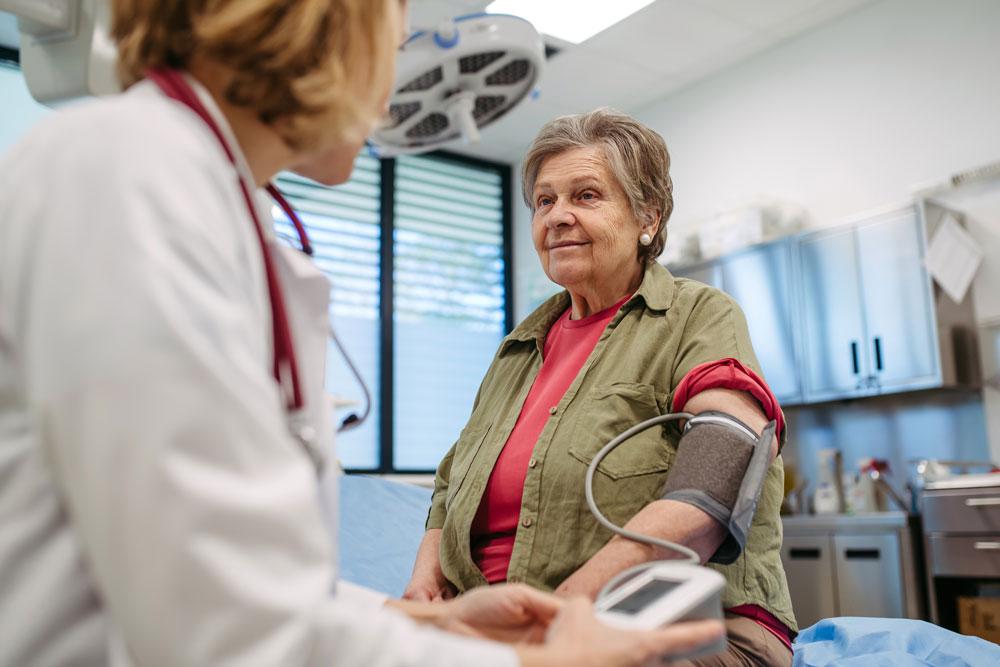The experts at PA Consulting look at how placing elected local government representatives at the heart of NHS integrated care systems could unlock their full potential
The development of Integrated Care Systems (ICSs) in England continues apace – including preparation for taking on a wide range of statutory responsibilities from April 2022 (subject to legislation). One of the key arguments underpinning ICSs – at both national policy level and in how they are being built locally – is that joining-up decision making between the NHS and Local Authorities as well as other community partners, will provide a basis for drawing on a much wider range of perspectives and resources for creating long-term, sustainable improvements to citizens’ health and well-being.
However, the maturity of relationships between NHS and local government organisations across the country remains variable. While relationships between NHS leaders and local government chief executives and directors of social care tend to be well developed, elected members (local politicians) are less likely to be meaningfully involved in integration discussions, and relationships with non-executive leaders are less well-established. The ICS Design Framework’s expectation is that place-based partnerships ‘listen consistently to, and collectively act on, the experience and aspirations of local people and communities’. To meet these requirements, health, care and local government organisations must build closer relationships that include citizens as a part of the decision-making process.
Why elected members are crucial to integrated care
Placing elected members and NHS leaders at the heart of Integrated Care Systems and place-based decision-making has the potential to significantly improve both the quality of decision-making and the speed at which subsequent improvements can take place. This is because elected members are necessarily very close to populations. They engage regularly with the citizens they represent and are accountable to them at election time. Their links to communities and direct accountability give elected members a unique perspective on local people and services, and how they can best be designed to meet local needs. In addition, creating structures where elected members are included as joint partners in decision-making processes as early as possible will reduce the risk of dispute and challenge which may follow the tough decisions involved in re-shaping services.
Early and active engagement with elected members is also crucial to expanding the scope of integrated care to encompass the broader services for which local authorities are responsible – those which can enable some of the greatest gains in health outcomes to be made in the longer-term. The wider determinants of health, such as housing, environment and economic inclusion, all have a critical bearing on health and wellbeing - in many cases a greater influence than NHS services. Despite this being well-known, they have hitherto remained peripheral to most health and care debates and decisions.
Take housing, for example. According to The Health Foundation, 32 per cent of households (or 7.6 million) in England had at least one major problem relating to overcrowding, affordability or quality of housing at the start of the pandemic. Poor quality homes can lead to (or exacerbate) physical health problems, whilst affordability, fuel poverty or insecure housing can create or exacerbate mental health issues.
Actively involving local political leaders in ICS decision making from the outset can act as an accelerant for deepening collaboration. It provides a visible sign of joint partnership, and can help Local Authority teams feel like they have a clear and unambiguous mandate to think and work differently with health partners. This can provide the impetus for collaboration that goes beyond Local Authorities’ remit for public health and social care, into those areas that have a profound impact on quality of life and health demand and which will need to be part of long term prevention strategies.
How to bring elected members into integrated care decisions
Effective and sustainable involvement of elected members requires genuine joint decision-making between local authorities and the NHS. That means moving past consultation, which can be superficial, however well-intentioned. It means investing time into developing relationships and a joint understanding of their places and translating that into a shared vision and narrative for place, underpinned by joint responsibility and accountability.
Doing so will require developing genuine joint priorities for the wellbeing of the population, and a single plan to address them. Only with such a shared vision can leaders work through issues and decisions together. So, local authorities and NHS organisations should agree the common priorities and plan in writing and express them in terms of population outcomes as precisely as possible.
Having agreed a vision, systems will then be in a position to establish joint decision-making structures to work towards it. These should ensure:
• Balanced membership of boards (and other decision-making groups) to support honest, open dialogue and genuine joint decision-making. For example, there should be either equal representation of the NHS and local authority, or else a mechanism to ensure that substantive decisions require the consent of both NHS and local authority leaders, with any exceptions minimised and clearly defined in advance. This will ensure that decisions combine clinical and democratic legitimacy, giving them a powerful basis for acceptance across the system and swift implementation. Consideration should also be given to ensuring an appropriate executive and non-executive split – which may include more non-executive (i.e. elected) representation from local authorities.
• Clear governance links to statutory boards for the NHS and local authority council or cabinet. This includes carving out the widest possible remit for joint decision-making arrangements, within statutory requirements, to create effective and comprehensive joined-up services that system partners jointly own. The creation of ICS Statutory Bodies from April 2022 provides a significant opportunity in this area. Provided that systems can work through and jointly agree how local authorities’ involvement can be maximised in a way which does not infringe NHS-specific accountabilities.
• Design arrangements appropriate for a decision-making function, rather than scrutiny or advice. For example, the appropriate management and secretariat support to ensure that decisions are timely, evidence-based, and suitably recorded to be acted upon by the system as swiftly as possible. This will ensure that structures reinforce the shift in working relationship from one of elected members scrutinising NHS decisions to open joint decision-making.
Finally, it’s important to note that joint decision-making structures and processes also have a cultural underpinning. NHS leaders, especially clinical leaders and elected members, bring not only complementary perspectives but also complementary legitimacy to decisions about health and care services. Direct democratic accountability has no equivalent in the local NHS.
Effective joint decision-making combines clinical and political perspectives, amplifying the legitimacy of decisions in a way that neither organisation could achieve alone but is essential to designing and implementing services built around the needs of local citizens.
Elected members can unlock the potential of Integrated Care Systems
To unlock their full potential to improve population health and reduce inequalities in wellbeing outcomes, Integrated Care Systems must skilfully navigate significant challenges and opportunities as they continue to develop. Ensuring elected members are at the heart of decision-making from the outset will provide critical perspectives, insights and links into local communities that will be vital to maximising their effectiveness.
Written by Michael West, James Tyler and Luke Muir, healthcare experts at PA Consulting.





